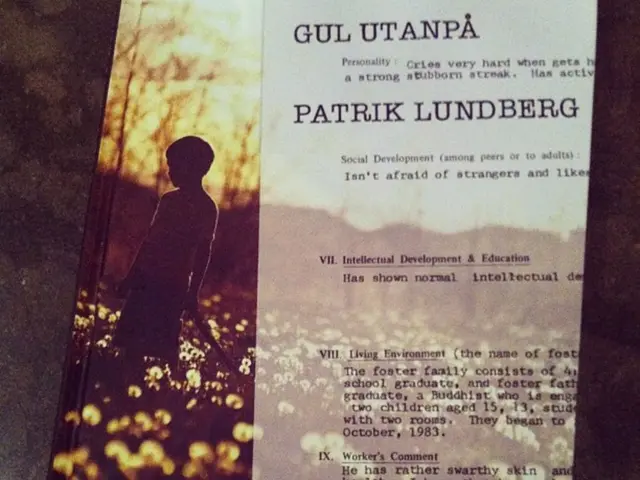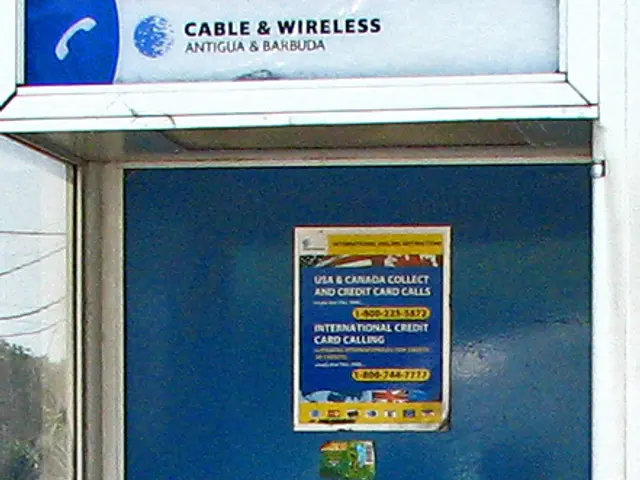Mastering English for Formal Community Gatherings: A Guide
A Fresh Take:
Navigating English-speaking community meetings doesn't have to be a nail-biting experience, even if English isn't your mother tongue. By understanding the ropes and practicing some cool strategies, you can hold your own and make your voice heard. This guide breaks it down for you.
Getting the Hang of Meetings
Mastering English community meetings isn't just about being there. It's understanding the vibe, the lingo, and the protocol. These meetings follow a set schedule known as the agenda, where discussions are arranged in order. Check it out beforehand, focus on topics you care about, and follow the pecking order of subjects to make sure your thoughts are timely.
Stay in the loop by checking out previous meeting minutes, reports, and proposals. These will help you catch up on the buzz and understand the context. Oh, and don't forget to learn the roles of the main characters in the play! Know who's wearing the captain's hat, the treasurer's purse, or the secretary's quill. This will help you connect with the right people when it comes to specific issues.
When the meeting kicks off, listen in on the introductory niceties to get a feel for who's who. Familiarizing yourself with peoples' professional backgrounds will allow you to better tailor your conversations.
The end of the meeting typically opens up for additional comments from participants and suggestions. This is your chance to throw your two cents in the ring, even if your chosen topic didn't pop up during the main event. Get the hang of finishing proceedings with summaries and clearing up action items.
Nailing the Prep
Preparation is the ace up your sleeve when it comes to acing meetings. Long story short, spend time researching the issues that will be discussed, and build a rock-solid understanding. Get behind the scenes of local laws, policies, and regulations, so you can drop knowledge bombs in an informed manner.
Once you've got the lowdown, craft your statements and questions like a pro. Be clear, concise, and strategic. Think beyond your immediate interests and aim for solutions that serve the community as a whole. Draft your arguments, including potential counterarguments, so you can hold your own without hesitation.
Practice makes perfect, so get your game face on and rehearse your delivery. Work on maintaining a steady pace, playing with your tone, and crushing those nerves. Consider recording yourself or getting a buddy to offer constructive feedback.
Paper (or digital) and pen are your BFF's for these meetings. Keep 'em handy to jot down key points during the meeting. This will help you remember important details and sets you up for smashing those follow-up actions.
Sending Shivers Down Their Spine (in a Good Way)
Communication is like a dance—timing, grace, and passion are key. Stay on point when you're talking, stick to what matters, and drop smart bombs (facts, stats, logic) when you need to. Save the jargon for when it's absolutely necessary and always clarify technical terms to ensure everyone's on the same page.
Pay attention to the flow of the conversation and tailor your comments to fit. Don't be shy about asking questions to push the discussion forward or clear up confusion. And remember, tact is everything, so ask your questions in a way that doesn't catch anyone off guard or make them feel defensive.
Last but not least, master the skill of diplomacy. Disputes are part of the game, but handling them with finesse—staying calm and focusing on solutions—will earn you (and your community) major brownie points.
The Wrap-Up
Nobody said it would be a walk in the park, but by knowing your stuff, owning your communication, and being an active participant, a formal English community meeting is child's play. Armed with determination (and this guide), you're now ready to make an impact and drive change in your community.
Remember, you've got the passion and the smarts; now all you need is a little practice. As you attend more meetings, your skills will only grow stronger. And before you know it, you'll have the wisdom to guide entire communities and change the world.
Nail your community meetings like a pro!
FAQs
1. How do I get ready for an English-speaking community meeting?
Nailing a community meeting begins by prepping like a boss. Familiarize yourself with the agenda, read through prior meeting minutes, and gather data on the topics up for discussion. Brush up on your English, focusing on formal phrases, being familiar with characters' roles, and understanding the rules of the game. Do some role-playing, too, so you're ready when the time comes to show off your A-game.
2. What should I do if I struggle with English during meetings?
English can seem like a different language during stressful situations, but don't worry, help is at hand. Listen actively, take notes to jot down key points and to help process information. Speak clearly, even if it feels a little shaky, and don't be afraid to ask questions if you need clarification. Use apps to help with translation, and keep a positive attitude—after all, practice makes perfect.
3. What should I expect from formal community meeting etiquette?
At formal meetings, things run like clockwork. Listen attentively, address the chairperson, follow the proper order, show respect for others, keep a civil tongue, and use polite language. Be a team player, collaborate to gain shared benefits, and avoid derailing the meeting with personal agendas.
4. What challenges do non-native English speakers encounter during community meetings, and how can they overcome them?
Non-native English speakers often struggle with accents, fast-paced discussions, and technical jargon. You can tackle these challenges by practicing active listening, using apps to help translate tricky words, and brushing up on industry-specific terms. If English isn't your main language, consider partnering with a bilingual friend who can offer in-the-moment translations or explanations.
5. How do I effectively communicate my ideas during the meeting?
Communicating effectively is all about clarity and brevity. Start with a clear statement of your idea, back it up with evidence if needed, and wrap up with a call to action. Use simple language, avoid jargon, and pace yourself to make sure your points are crystal clear. If you're finding it tough, prepare talking points and even bring them with you to help guide your thoughts during the meeting. And don't forget to show appreciation and respect for others' ideas—disagreeing without being rude will make you a more respected participant.
Overcoming language barriers in the context of education-and-self-development can lead to personal growth as one learns to effectively communicate in English-speaking community meetings. This journey involves understanding the unique etiquette of these meetings, actively preparing with the agenda, prior meeting minutes, and researching topics, mastering key communication skills like diplomacy and clear speech, and practicing until one feels comfortable participating.
This gained knowledge and skill can foster a sense of accomplishment, making one's voice heard, and ultimately contributing to the betterment of the community through immediate impact and long-term change. Ongoing learning, including area-specific vocabulary and industry terms, will further enhance one's ability to excel in English-speaking settings, leading to continued personal growth.







